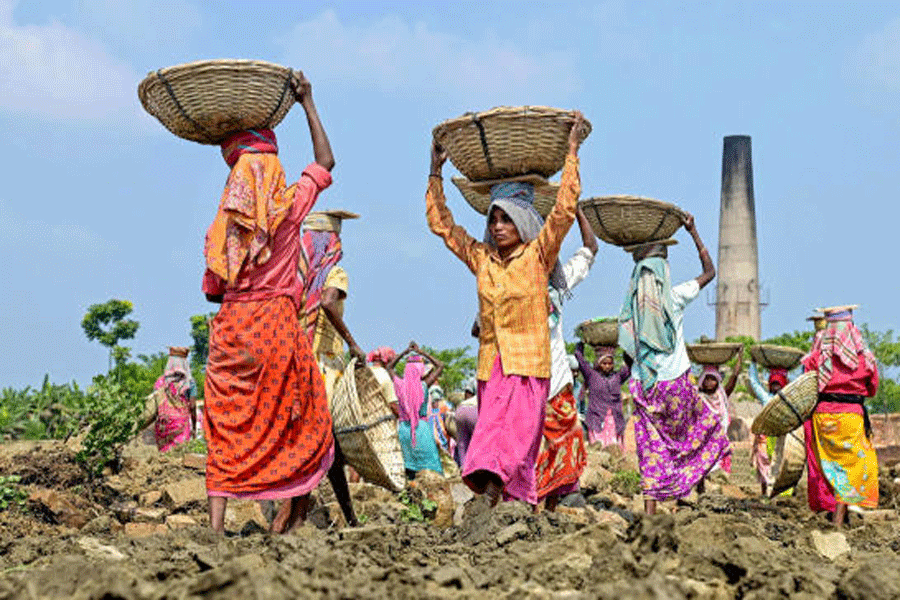The apex monitoring and advisory body for projects carried out under the Mahatma Gandhi National Rural Employment Guarantee Act has been defunct for over two years at a time workers have been struggling to register attendance or demand work.
The Union rural development ministry has failed to reconstitute the central employment guarantee council (CEGC) since May 2021. The council is headed by the rural development minister and has 15 members, including representatives of panchayati raj institutions (officials and elected representatives), workers’ bodies, disadvantaged groups and civil society organisations.
Ashis Ranjan, an activist associated with the NREGA Sangharsh Morcha, a civil society organisation that defends rural job scheme workers’ rights, said the prolonged delay in the reconstitution of the council suggested that the government wanted to shut out any criticism.
“The CEGC members provide feedback on the ground situation, such as any difficulties faced by the workers. The government does not want to hear any criticism of the programme,” Ranjan said.
He said the CEGC is empowered to evaluate the rural job scheme and review the redress mechanisms for workers’ grievances, suggesting any necessary changes. Its recommendations are not binding on the government but are significant since it is headed by the minister, Ranjan added.
He listed several problems faced by the workers that the council could have attempted to rectify:
The government has introduced the National Mobile Monitoring Service App through which the NREGA workers’ attendance is registered online. In many places, attendance is not registered because of poor Internet connectivity.
The rural development ministry is pushing the Aadhaar-Based Payment System for the payment of rural job scheme wages. However, nearly 40 per cent of the workers lack ABPS-compliant bank accounts.
Last year, the states deleted over 5 crore job cards. A field verification report by the research group LibTech India found violations of the requirement to inform the local gram sabhas before the deletions of job cards. The workers whose job cards have been deleted will have to apply afresh to be able to get work under the scheme.
Ranjan said the CEGC functioned as a forum through which civil society groups could raise the workers’ issues before the government.
“At present, the workers are facing several difficulties. Civil society groups are raising these issues but the government has adopted an indifferent approach,” he said.
“If the CEGC were functioning, all these issues could have been raised and brought on record.”
Rakshita Swamy, associated with the People’s Action for Employment Guarantee, said the undermining of the CEGC’s role had been going on for a decade.
She said key decisions relating to the job scheme are meant to be discussed in the CEGC. However, the government had assigned key matters such as the wage revision formula and the study of the low demand in the northern states to separate expert committees.
“The CEGC is a statutory body for reviewing and advising on the implementation of the MGNREGA,” Swamy said.
“Between 2006 and 2011, the CEGC made meaningful contributions on issues like wage revision and social audit. But gradually, its role has been trivialised by setting up separate expert panels on key issues. This government has now gone a step further by not reconstituting the CEGC.”
An email was sent to rural development secretary Sailesh Kumar Singh seeking the reasons why the CEGC had not been reconstituted. His response is awaited.











